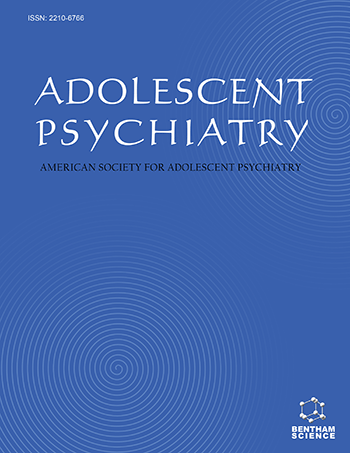Abstract
Until bright, creative, and alienated adolescents learn to make reasonable decisions, they will not engage in proactive, constructive, and creative change. Grounded in principles of reality therapy and choice theory, compassionate confrontation psychotherapy (CCP) stresses the concepts of conscious choice and acceptance of responsibility for ones actions. CCP provides a unique therapeutic experience to induce change. Viewed from this pragmatic and humanistic perspective, the overuse of psychiatric diagnoses and psychopharmacologic treatments inadvertently relieve gifted adolescents from accepting accountability for their choices. Evidence of the success of CCP can be found in the high percentage of alumni of the John Dewey Academy who are admitted to and complete their educations at leading colleges and graduate schools. Further evidence is provided by their academic performances at those institutions of higher learning.
Keywords: Adolescent psychotherapy, confrontation in psychotherapy, gifted adolescents, adolescent behavior disorders, CCP, alienated, Boarding School, Self-Destructive, Compassionate, gifted
Adolescent Psychiatry
Title: Compassionate Confrontation Psychotherapy: Working with Gifted but Self-Destructive Adolescents in a Therapeutic Boarding School
Volume: 1 Issue: 3
Author(s): Thomas Edward Bratter
Affiliation:
Keywords: Adolescent psychotherapy, confrontation in psychotherapy, gifted adolescents, adolescent behavior disorders, CCP, alienated, Boarding School, Self-Destructive, Compassionate, gifted
Abstract: Until bright, creative, and alienated adolescents learn to make reasonable decisions, they will not engage in proactive, constructive, and creative change. Grounded in principles of reality therapy and choice theory, compassionate confrontation psychotherapy (CCP) stresses the concepts of conscious choice and acceptance of responsibility for ones actions. CCP provides a unique therapeutic experience to induce change. Viewed from this pragmatic and humanistic perspective, the overuse of psychiatric diagnoses and psychopharmacologic treatments inadvertently relieve gifted adolescents from accepting accountability for their choices. Evidence of the success of CCP can be found in the high percentage of alumni of the John Dewey Academy who are admitted to and complete their educations at leading colleges and graduate schools. Further evidence is provided by their academic performances at those institutions of higher learning.
Export Options
About this article
Cite this article as:
Edward Bratter Thomas, Compassionate Confrontation Psychotherapy: Working with Gifted but Self-Destructive Adolescents in a Therapeutic Boarding School, Adolescent Psychiatry 2011; 1 (3) . https://dx.doi.org/10.2174/2210676611101030227
| DOI https://dx.doi.org/10.2174/2210676611101030227 |
Print ISSN 2210-6766 |
| Publisher Name Bentham Science Publisher |
Online ISSN 2210-6774 |
 19
19
- Author Guidelines
- Graphical Abstracts
- Fabricating and Stating False Information
- Research Misconduct
- Post Publication Discussions and Corrections
- Publishing Ethics and Rectitude
- Increase Visibility of Your Article
- Archiving Policies
- Peer Review Workflow
- Order Your Article Before Print
- Promote Your Article
- Manuscript Transfer Facility
- Editorial Policies
- Allegations from Whistleblowers
Related Articles
-
Childhood Hospitalisations for Physical Disease and Risk of Mental Disorders During Adolescence and Early Adulthood
Adolescent Psychiatry Editorial: DSM-5 and the Challenge of Understanding and Treating Adolescents
Adolescent Psychiatry Blurred Edges: Evolving Concepts of Autism Spectrum Disorders and Schizophrenia
Adolescent Psychiatry The Holocaust, War Trauma and Reconciliation: Commentary on the Special Section
Adolescent Psychiatry Summaries of Selected Presentations from the 2012 Annual Meeting of the American Society for Adolescent Psychiatry
Adolescent Psychiatry Current Understanding of Dyslexia and Pilot Data on Efficacy of a Mindfulness Based Psychotherapy (MBR-RAM) Model
Adolescent Psychiatry From 9/11 To 2011: A Brief Overview from a Child and Adolescent Psychiatry Perspective
Adolescent Psychiatry Effectiveness of Wet Sheet Packs in Children and Adolescents with Severe Auto/Hetero Aggressive Behaviors: An Exploratory Approach
Adolescent Psychiatry Trauma Interventions using Mindfulness Based Extinction and Reconsolidation (TIMBER<sup>©</sup>) as Monotherapy for Chronic PTSD: A Pilot Study
Adolescent Psychiatry The Therapeutic Community for the Adolescent Substance Abuser
Adolescent Psychiatry Adolescent Parenthood and Offspring Suicide Attempts in Adolescence
Adolescent Psychiatry Risk Factors for Suicidal Ideation Among High School Students in Istanbul
Adolescent Psychiatry Internet and Video Game Addiction: Evidence & Controversy
Adolescent Psychiatry Cyber Cruelty: Understanding and Preventing the New Bullying
Adolescent Psychiatry Health Care Providers’ Need for Child and Adolescent Mental Health (CAMH) Training in South Western Nigeria
Adolescent Psychiatry New Onset ADHD Symptoms in Adolescents and College Students: Diagnostic Challenges and Recommendations
Adolescent Psychiatry Opioid Use Disorders in Adolescents: A Review of Prevalence, Problems, Clinical Features and Treatment Options
Adolescent Psychiatry Multicultural Issues in Child and Adolescent Psychiatry in Ireland
Adolescent Psychiatry Treating Traumatic Stress in Children and Adolescents
Adolescent Psychiatry Culturally Informed Care of the Turkish-American Child, Adolescent, and Family
Adolescent Psychiatry

























